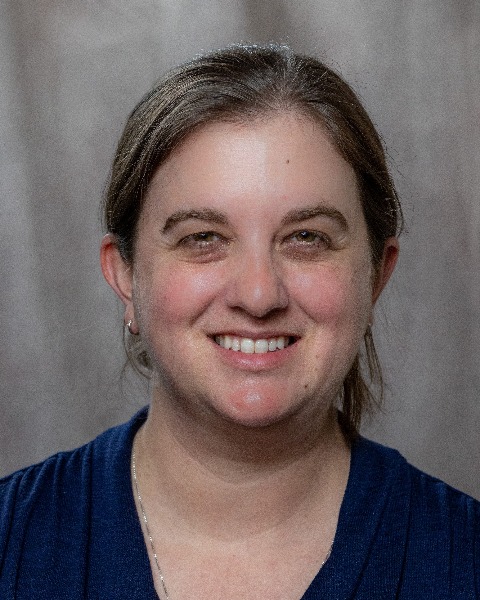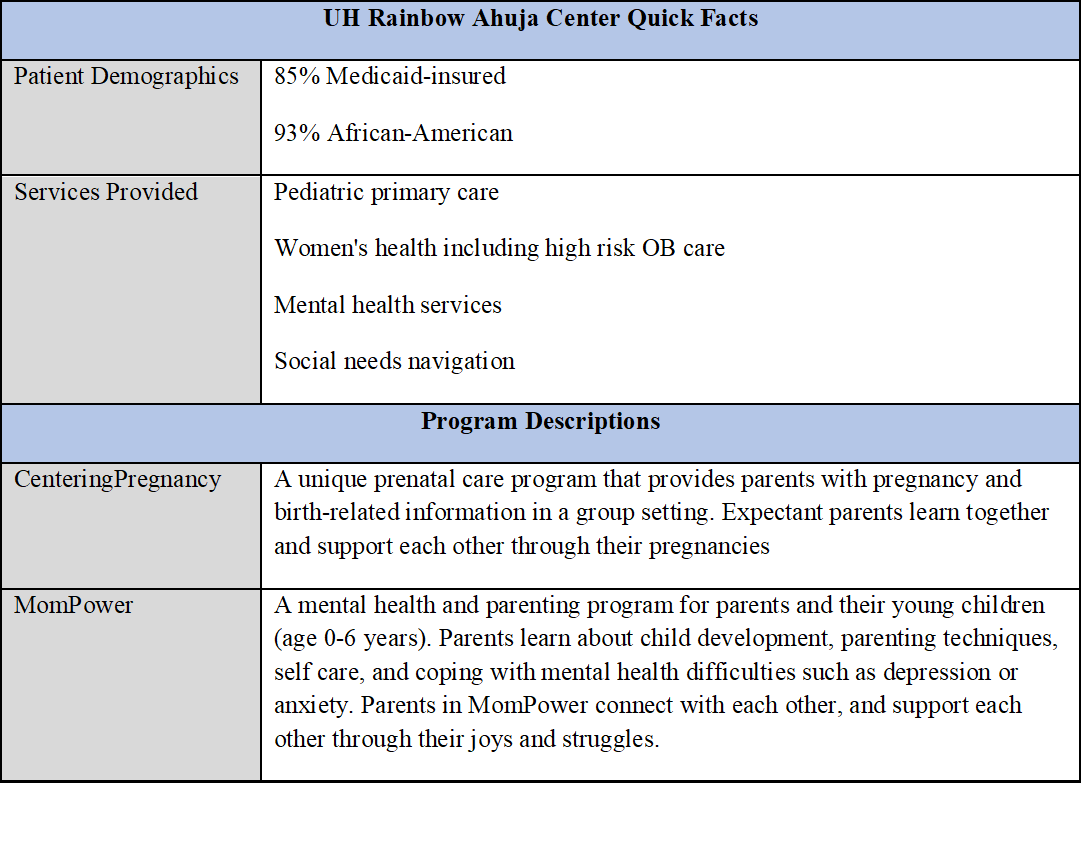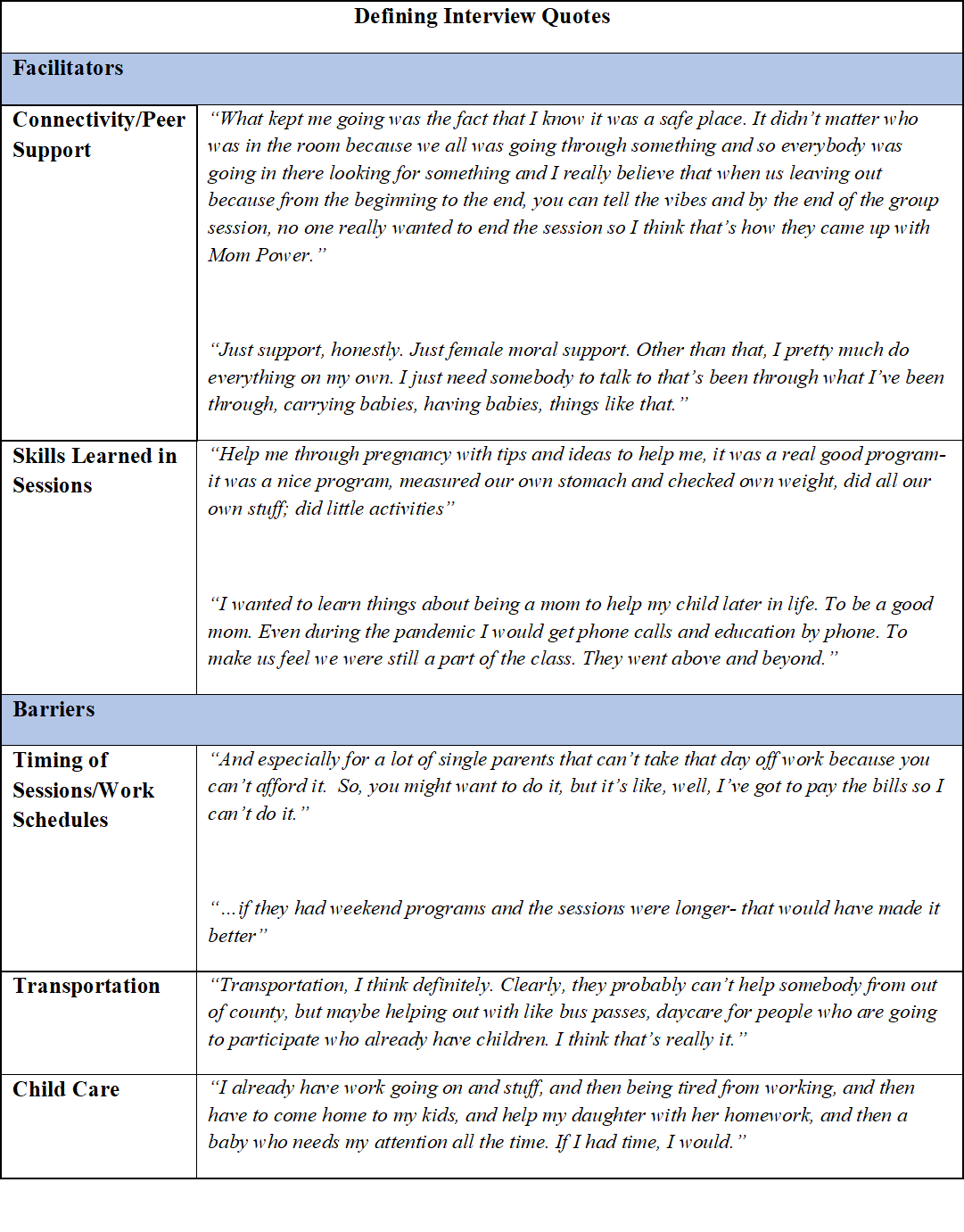Back
Health Services Research
Category: Abstract Submission
Health Services Research III
9 - Integrating Patient Perspective in Group Care Program Planning and Facilitation
Monday, April 25, 2022
3:30 PM – 6:00 PM US MT
Poster Number: 9
Publication Number: 9.414
Publication Number: 9.414
Tashyana Copeland-Smith, UH Rainbow Babies & Children's Hospital, Cleveland, OH, United States; Maria DeRenzo, UH Rainbow Babies & Children's Hospital, Cleveland, OH, United States; Paige Ewing, UH Rainbow Babies & Children's Hospital, Cleveland, OH, United States; Sarah D. Ronis, Case Western Reserve University School of Medicine, Cleveland, OH, United States

Sarah D. Ronis, MD, PhD (she/her/hers)
Associate Professor
Case Western Reserve University School of Medicine
Cleveland, Ohio, United States
Presenting Author(s)
Background: Group care programs are an innovative approach to care delivery; research suggests that these models can improve health status and utilization for patients, particularly in prenatal and chronic condition care. To maximize peer support and learning, group care models function best when a stable quorum of participants attend sessions regularly. However, group care models serving populations with multiple competing priorities can be challenged to enroll and retain participants.
Objective: To identify patient-reported facilitators and barriers to participation in various models of group care.
Design/Methods: Semi-structured telephone interviews were conducted March-May 2021 with 30 pregnant patients (51% response rate) obtaining care at the UH Rainbow Ahuja Center for Women & Children (the Center) in Cleveland, Ohio with at least one comorbidity (chronic hypertension, obesity, diabetes, and/or substance use disorder), supplemented by survey of 322 patients and families representative of the general population obtaining care at the Center (54% response rate) in October-December 2021. Narrative and open-ended responses were organized using content analysis into themes that were then classified as either facilitators or barriers.
Results: Among persons participating in spring interviews, 43% reported participating in a form of group care during their pregnancy. Of the general patient population surveyed, 24% reported prior experience with group care, predominantly the CenteringPregnancy® model (62%) while 38% reported participating in other models of care (ex. MomPower, asthma, high-risk pregnancy). Facilitators included connectivity/peer support and skills learned during sessions. Barriers included work schedules/timing of sessions, transportation, and child care. Compared to the general Center population, spring interviewees more often stressed the importance of connectivity/support (53% v 25%) and of considerations of timing of sessions and their work schedules (27% v 6%). Participants in this group also reported transportation as a barrier more than the general group (27% v 1.3%). Both groups similarly reported the importance of the techniques and skills obtained in group sessions (40% v 45%).Conclusion(s): Given the themes of peer support and skill building as not only benefits of group care but facilitators to ongoing participation, health care institutions implementing such models should consider deploying strategies that overcome initial reticence for group care and accurately communicate to potential participants benefits of the model.
Table 1. Rainbow Center Fact Sheet
Table 2. Defining Interview Quotes
Objective: To identify patient-reported facilitators and barriers to participation in various models of group care.
Design/Methods: Semi-structured telephone interviews were conducted March-May 2021 with 30 pregnant patients (51% response rate) obtaining care at the UH Rainbow Ahuja Center for Women & Children (the Center) in Cleveland, Ohio with at least one comorbidity (chronic hypertension, obesity, diabetes, and/or substance use disorder), supplemented by survey of 322 patients and families representative of the general population obtaining care at the Center (54% response rate) in October-December 2021. Narrative and open-ended responses were organized using content analysis into themes that were then classified as either facilitators or barriers.
Results: Among persons participating in spring interviews, 43% reported participating in a form of group care during their pregnancy. Of the general patient population surveyed, 24% reported prior experience with group care, predominantly the CenteringPregnancy® model (62%) while 38% reported participating in other models of care (ex. MomPower, asthma, high-risk pregnancy). Facilitators included connectivity/peer support and skills learned during sessions. Barriers included work schedules/timing of sessions, transportation, and child care. Compared to the general Center population, spring interviewees more often stressed the importance of connectivity/support (53% v 25%) and of considerations of timing of sessions and their work schedules (27% v 6%). Participants in this group also reported transportation as a barrier more than the general group (27% v 1.3%). Both groups similarly reported the importance of the techniques and skills obtained in group sessions (40% v 45%).Conclusion(s): Given the themes of peer support and skill building as not only benefits of group care but facilitators to ongoing participation, health care institutions implementing such models should consider deploying strategies that overcome initial reticence for group care and accurately communicate to potential participants benefits of the model.
Table 1. Rainbow Center Fact Sheet

Table 2. Defining Interview Quotes

